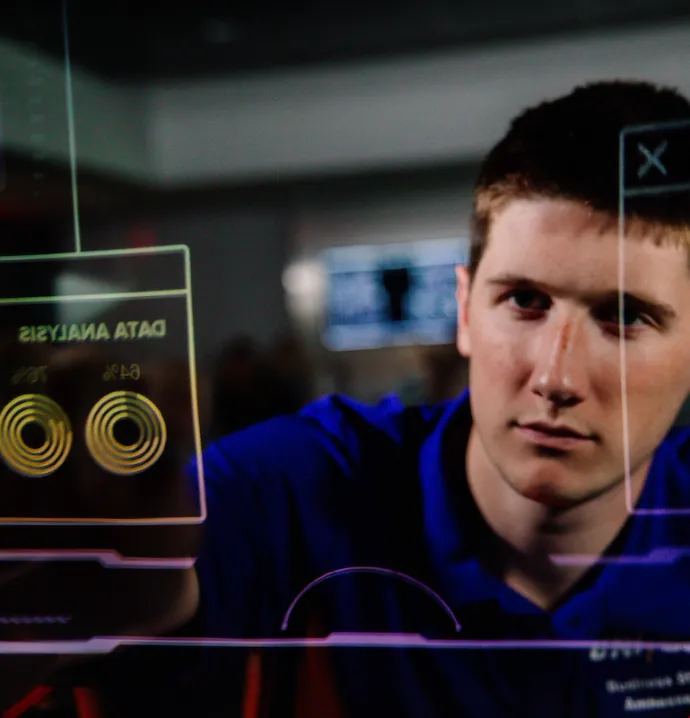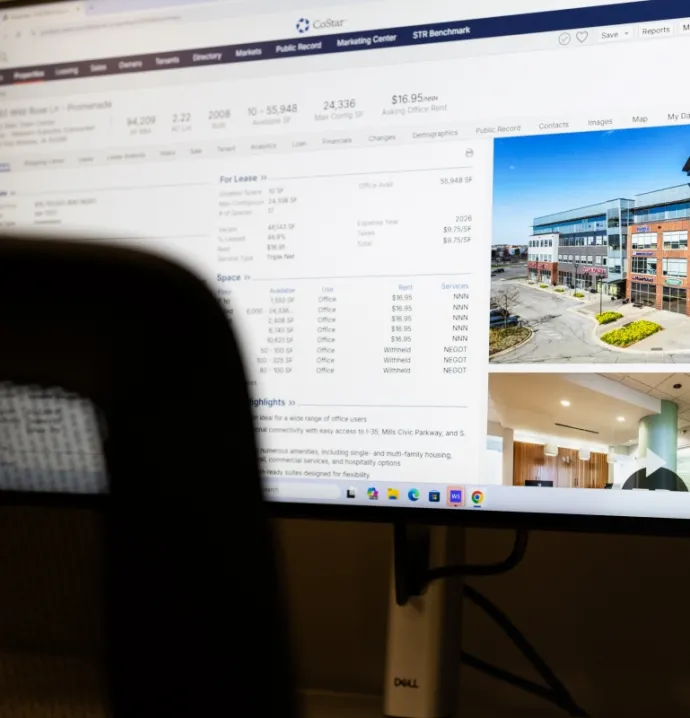Your Marketing Never Sleeps
Your Marketing Never Sleeps

The marketing and advertising industry is changing quickly. Gone are the days of placing an ad and waiting weeks to see it on a billboard or in a magazine. Today, advertisers can publish an ad and have it shown to customers in a matter of seconds. With the increased speed comes instant feedback from customers and metrics on performance.
When Marc Reifenrath (Marketing, ’01) thinks back to 2000 — the year he started his digital marketing and advertising company, Spinutech — he remembers an entirely different industry. Those were the pioneering days of technology changing the space, with vague terms such as web impressions and page views dominating strategy.
“There was a lot of loosey-goosey stuff that didn’t really mean anything,” Reifenrath said.
Today, the game is completely different. Marketers and advertisers look far beyond page views and web traffic. They are dialed into a specific set of analytics that measures how audience members get through the sales funnel; then they actually make adjustments to meet a specific goal. In short, the digital age has completely changed the industry, Reifenrath said, including how they do things at Spinutech.
“It’s having data that is unique to your situation, not just broad strokes,” Reifenrath said. “Looking at the data, and not overwhelming yourself with it, but using those insights to make incremental improvements.”
Mike Schreurs (Marketing, ’69) has been in marketing for over four decades, starting Strategic America in 1980. The integrated marketing firm specializes in field marketing, brand building and customer engagement. Technology is such a big part of what they do that the company created a proprietary advertising technology platform called SA Hub.
The creation of the program started in the late 1990s — the early days of the web. Schreurs and his team recognized things were changing quickly, and they needed to act fast, so they made a platform that was tailorable to each client, allowing them to make decisions in various media markets across the United States.
“It cut costs; it cut time to market,” Schreurs said. “It brought a competitive advantage.”
But while technology has shifted the speed and accuracy of marketing strategies, experts say the apparent success comes with caution. Reifenrath said creating a well-thought-out strategy is still of utmost importance. That takes time. For example, a marketer can build brand awareness through targeted buys but might lose potential customers if there are not good online landing pages.
“It’s a good thing [that speed has increased], but everything needs to be well planned,” Reifenrath said. “That way, you’re not spending money just to spend money, and everything is set up as a trap to receive all that traffic and catch what you want out of the campaign.”
Matthew Wilson, Instructor of Marketing and Entrepreneurship, said students need to be well educated in digital technology and analytics in order to be prepared to enter the profession. He teaches his students to be familiar with tools such as Google Ads and Google Analytics, so they have a working understanding of how digital campaigns and experiences can be monitored in real-time.
“The most successful marketing companies of the past 20 years - brands like Google, Amazon, Apple, and Facebook - have been very agile and innovative with digital technology to achieve business goals,” Wilson said. “In the future, even with the rising power of artificial intelligence, it will continue to be crucial for digital marketers to have an understanding of data and technology to quickly evaluate and optimize their campaigns.”
The future of technology-driven marketing and advertising is bright, Wilson believes. This is particularly true as local agencies have the potential to serve national and even international clients because of the emergence of digital platforms. That bodes well for UNI students who generally want to establish their careers in the Midwest.
“The advertising industry is thriving,” Wilson said. “There are many new digital agencies in Iowa who are thriving. That’s great for our state and another positive way that digital technology has changed things. It’s allowed an agency in Cedar Falls or Des Moines to competitively and successfully work with national clients.”




